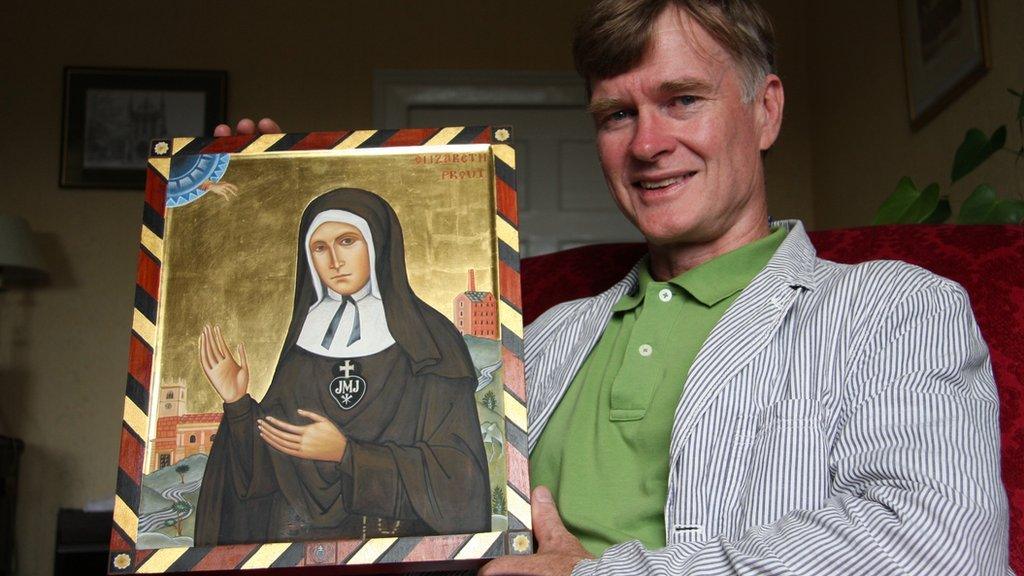Elizabeth Prout: Manchester slum nun closer to sainthood
- Published
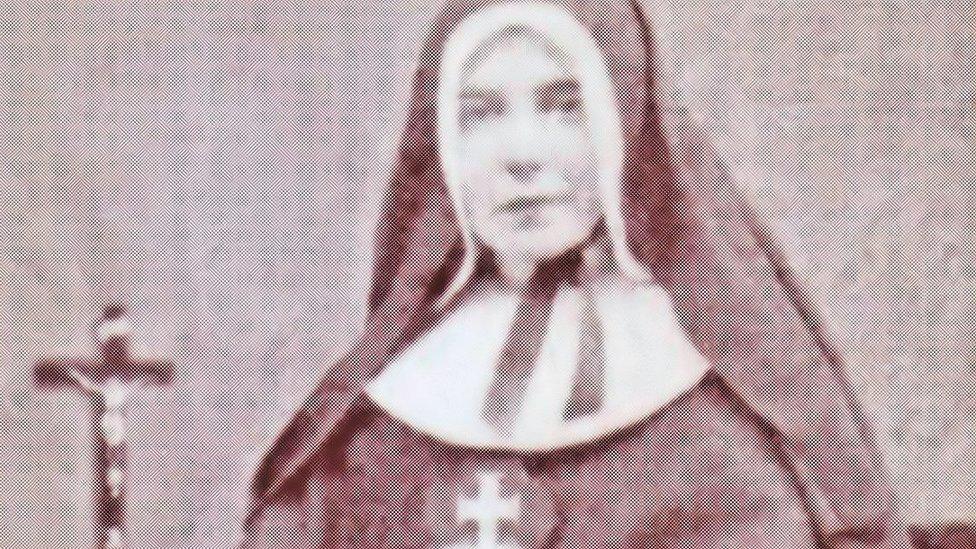
Sister Elizabeth Prout opened schools for children in poverty and homes for destitute women
A Victorian nun is a step closer to being the first modern female English saint not killed for her faith after Pope Francis recognised her "heroic virtue".
Elizabeth Prout, known as the "Mother Teresa of Manchester", was declared "venerable" at the Vatican on Thursday.
The announcement leaves her two steps away from canonisation.
The nun would be the first non-martyr English female saint since an 11th Century Anglo-Saxon princess.
Her new status, external comes in a year marking the bicentenary of the birth of Prout in Shrewsbury.
Bishop of Shrewsbury, the Rt Rev Mark Davies, said he was overjoyed and said it was appropriate the announcement came during the coronavirus pandemic for a woman who "helped many during the epidemics which swept the industrial communities of Victorian England".

Pope Francis has declared that Elizabeth Prout lived a life of "heroic virtue"
Prout lived in Stone, Staffordshire, where she was inspired to convert from Anglicanism to the Roman Catholic faith after hearing Italian Missionary Father Dominic Barberi preach in the 1840s.
She moved to Stocks Street in Manchester, teaching mill workers and Irish immigrants fleeing the potato famine close to the notorious slum Angel Meadow, which was dubbed "Hell On Earth" by Friedrich Engels and was near the infamous mass grave of 40,000 paupers.
Her schools for children in poverty and homes for destitute women were ahead of her time as she taught women crucial skills to earn their living.
Prout founded an order of nuns called the Sisters of the Cross and Passion.

The path to sainthood
A Roman Catholic is declared venerable when an exhaustive Vatican study of their life and writings finds the candidate lived a life of "heroic virtue"
The next stage is beatification when doctors and theologians decide an "inexplicable medical cure" has taken place due to the would-be saint's heavenly prayers
Canonisation comes when the process is repeated for a second "miracle" cure
Source: Catechism of the Catholic Church

Prout was listed among seven new venerable Catholic lay people and clergy including the French geneticist and paediatrician Jerome Lejeune who discovered the extra chromosome that causes Down's syndrome
She died in 1864 aged 43 and was buried at the same shrine as Father Barberi, in the Church of St Anne and Blessed Dominic at the forming mining community of Sutton in St Helens.
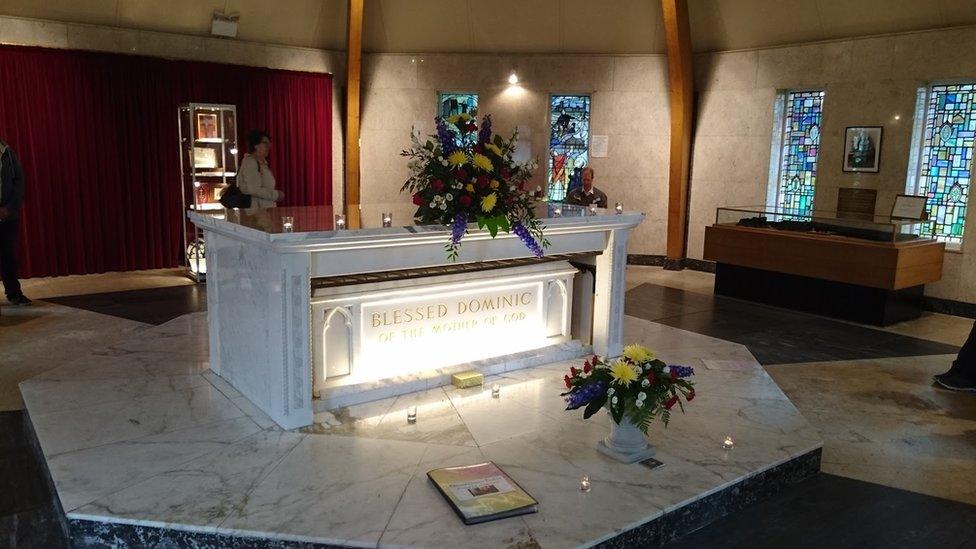
Elizabeth Prout is buried next to Blessed Dominic Barberi who inspired her to become a Roman Catholic

Why not follow BBC North West on Facebook, external, Twitter, external and Instagram, external? You can also send story ideas to northwest.newsonline@bbc.co.uk, external
- Published4 September 2020
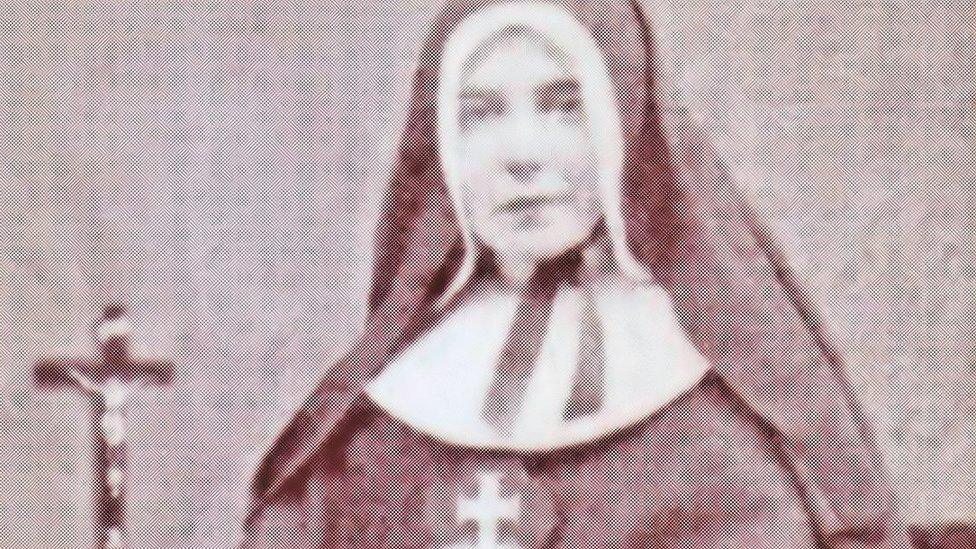
- Published19 September 2012
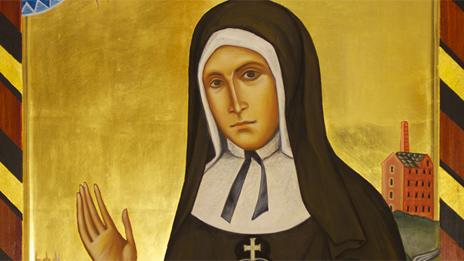
- Published19 August 2012
